Angela Merkel: ‘I am worried, we have to protect freedom’
She was Germany’s chancellor for 16 years. After leaving office in 2021, she disappeared. Now she is back with her memoirs, in which she reflects on her time in power and her life in the GDR. And she defends her legacy. EL PAÍS interviewed her in Berlin where she sends a message: ‘Freedom cannot be taken for granted’
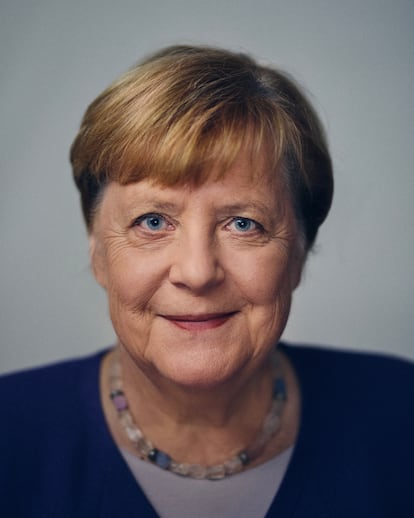
One day, she fell silent. This is not the norm for political leaders. She was everything. Chancellor of Germany between 2005 and 2021, re-elected four times and, in the meantime, political, economic, and health crises. She left on her own two feet, deciding not to run again. She never lost. On December 8, 2021, she handed over power to her successor and did not speak publicly again, except on exceptional occasions. In effect, she disappeared.
Three years later, here is Angela Dorothea Merkel. She enters the room and greets the team from EL PAÍS, and she is the same as before: natural at close quarters, with a good sense of humor that can surprise — during the photo session she says that, to smile in front of the camera, she thinks of Spanish tapas — and at the same time a cutting self-control and meticulousness. While she smiles, she measures each word, each gesture.
Merkel is back: she has published her memoirs, Freedom, written together with her loyal collaborator Beate Baumann, and across the 720 pages of the book, and also on this foggy November morning in the legendary Hotel Adlon Kempinski in Berlin, she breaks her silence. Merkel may be the same as she was, but the world is different. Donald Trump has been elected president of the United States for the second time. Germany is facing a recession. The coalition headed by Chancellor Olaf Scholz has just collapsed: Merkel’s successor will have lasted just over three years and the end of this government has been turbulent. It is not even a quarter of the time she was in office before leaving in an orderly manner, without drama or commotion.
Question. Aren’t you sometimes tempted to return to politics to put your knowledge and experience at the service of citizens? Don’t you sometimes think: “I would do it like this or like that?”
Answer. I was chancellor for 16 years and I don’t feel the need to go back. I served Germany for a long time and tried to do it as best I could. There always comes a time when successors have to carry on the task. Of course, I sometimes think about how I thought and acted in a certain situation. And that is precisely why I wrote my memoirs. But I will not get involved in current politics again. My time in active politics is over.
***
Her time: you only have to look out of the window of the room where this interview is taking place to understand the significance of this time for her, for Germany, for Europe, for the world. The room looks out onto the Brandenburg Gate, a symbol of the division and unification of Berlin. The wall ran through here during the Cold War and from the other side the 40th president of the United States, Ronald Reagan, said to Mikhail Gorbachev, the Soviet leader, in 1987: “Mr. Gorbachev, tear down this wall.”
Two years after Reagan’s speech, the wall came down and everything changed, including for Angela Merkel, the daughter of a Protestant pastor and a teacher who had emigrated from Hamburg in the West to the German Democratic Republic (GDR), when the future head of government was a newborn. She is a pure product of communist East Germany, a physicist by profession, spending half her life under a dictatorship and half in a democratic and free country. She was 35 years old on November 9, 1989.
Her time in politics — her rise in the Christian Democratic Union (CDU), the great party of the German right, her party, and even her years as the leader of Germany — was perhaps a parenthesis in history. It began with that unique moment when freedom and democracy seemed to triumph, Fukuyama’s “end of history.” It ends with the triumph of Trump, Vladimir Putin’s war, and the populist and far-right wave in Western democracies.
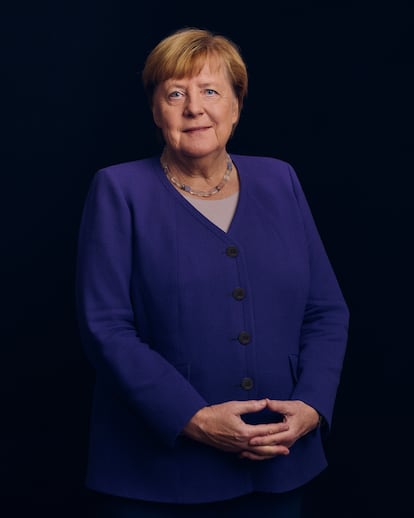
Q. In the book you write: “If we want to live in freedom, we must defend our democracy, inside and outside, from those who threaten it.” In 1989 we thought that freedom had triumphed. Are there reasons today to fear for freedom and democracy?
A. I am 70 years old now and the theme of freedom has been a constant in my life. During the 35 years I lived in the GDR, I missed freedom, but my parents gave it to me within the family. By writing this book I have been able to look back to that time when there was no freedom within the state. Today, after the euphoria of 1989 and 1990, I see that there are again parties and political movements that try to restrict it. That is why I believe that we must fight for the value of freedom, that we must repeat to each generation that it is something valuable, that it cannot be taken for granted, that it must be earned again and again. Freedom includes respect for others, tolerance, the ability to reach consensus. All of this must be practiced again and again, in each generation.
Q. Do you have a different idea of freedom having lived for 35 years under a dictatorial regime?
A. I think that I, and all of us who have lived in the GDR or other dictatorships — there was one in Spain many years ago — know the desire for freedom. In the GDR, we longed for it, we felt the desire that our talents, our abilities and our dreams would not always be limited — either by the state or by our own people — but that we could develop freely. Of course, I remember that. That is why I am very grateful for freedom and the opportunities it brings today. At the same time, freedom is also always exhausting and demanding, because it constantly requires one to take responsibility for one’s own life and for the lives of others.
Q. But aren’t you afraid that the era that seemed to begin in 1989 may now be coming to an end?
A. I have always said that fear is not a good counselor. But I am worried and I think that we have to protect freedom. Today we are faced with challenges and difficulties that we did not have in the past, for example because of social networks, and also because of the tendency to perceive everything in black and white and for shades of gray and colors to disappear in favor of extremes.
***
In their meetings with Angela Merkel, Barack Obama and Emmanuel Macron must have observed her with curiosity and fascination. She was an extraterrestrial. A particular politician whom it was difficult to imagine looking at herself in the mirror at the beginning of her career and saying to herself, like so many others: one day I will reach the top. A politician whom power did not dazzle — or at least not outwardly — or transform. It did not dehumanize her and, if it did, it did not show. Vanity and narcissism are not among her defects; neither fantasy nor audacity among her virtues. In her way of speaking and reasoning, and in her style, she cannot hide her origins, and neither does she want to. She is a Protestant woman from the East, a scientist who had already made a good part of her career when she entered politics; all this she has never ceased to be.
And how would Putin view Merkel, who learned Russian at school in the GDR, while he speaks German from his time as a KGB agent in Dresden? In her memoirs, Merkel explains that she has been afraid of dogs ever since she was bitten by one in 1990, and recalls when, during a meeting, the Russian president tried to intimidate her by unleashing Koni, his black Labrador: “I tried to ignore the dog, even though he was moving more or less right next to me. I interpreted Putin’s facial expressions as him enjoying the situation. Did he just want to see how a person reacts in distress? Was it a small demonstration of power?”
And what about Trump? “Apparently, the Russian president fascinated him,” she writes. “I had the impression that politicians with autocratic and dictatorial traits captivated him.”
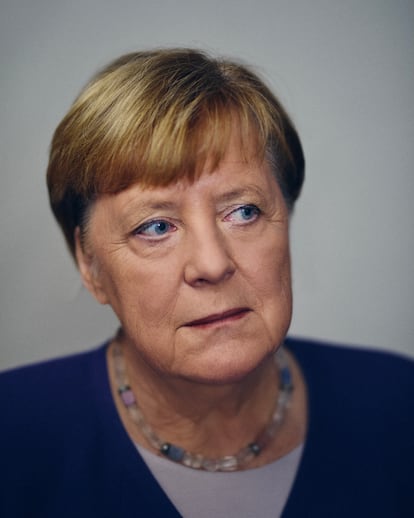
Q. As Federal Chancellor, you frequently dealt with Trump during his first presidential term. You write: “He looked at everything from the perspective of a real estate investor… all countries were in competition, and the success of one meant the failure of another.” Do you have any advice for politicians working today on how to deal with him from now on?
A. I don’t have any advice, but I do have experience. My experience is that you have to try to be yourself. I’ve always tried to be myself. I expressed my opinions and Donald Trump expressed his. And sometimes he expressed them with the intention of making you a little afraid of those opinions. I expressed my opinion with confidence and joy, because I was convinced of it. You don’t have to worry in a conversation that you’ll never be able to get your way. Every person has their own interests, and you have to reconcile these interests, even if it’s sometimes difficult.
Q. It’s certainly a good method for any interlocutor, but isn’t it different with Trump?
A. The problem is that he does not believe in win-win situations, in situations in which everyone wins, but thinks in terms of winners and losers. If one politician makes concessions, if he gives something to another and the other gives him something in return, both have won something, because together they are stronger than alone. That is also the fundamental principle of the European Union. The opposite is Make America Great Again, a concept that only seeks to achieve the strength of one’s own country, which in many cases can only work by taking something away from or denying something to other countries.
Q. In the book, you write about the GDR era, a topic you have spoken little about in the past 35 years.
A. The wall fell in 1989, right here where we are sitting, and I immediately threw myself into politics and had no time to think deeply about what it had been like to live in the GDR. The process of writing this book allowed me, for the first time, to engage in really deep reflection.
Q. Only in one of your final speeches did you speak openly about this, and you said that your experience of life in the GDR was considered a “burden.” Even in your own party it was seen as such. On another occasion, you were even called a “Federal German by training [not by birth].” Did this hurt you?
A. Yes, it hurt. Curiously, none of these comments were made in the 1990s, but at the beginning of this decade. I was only able to speak about it in this way at the end of my term in office. Before, I always considered myself the chancellor of all Germans, both East and West. Instead of saying, “Look what it means to be the first woman and the first East German in this office,” I tried, as my oath requires, to serve the entire German people and not to emphasize the differences between East and West. When I left office, I wanted to emphasize this facet more strongly than before.
Q. You write: “Until the last day of my political responsibility, for more than 30 years, I was always concerned with the question of when and how German unity would actually be completed.”
A. German unification is not complete. When will it be? I used to say that it will be complete when the differences between Mecklenburg-Western Pomerania and Schleswig-Holstein [two neighboring federal states in northern Germany, formerly separated by the German border] are smaller than those between Mecklenburg-Western Pomerania and Saxony [two former East German states, one in the north and the other in the south]. But it turns out that there are structural differences between East and West Germans, for example in their relationship to political parties. As a result of the experience of the dictatorship in the GDR, there is a completely different level of skepticism in the new [formerly eastern] federal states than in the old [western] ones regarding party membership. In addition, there was a large exodus of people from the East to the West. Many people moved to the old federal states after German reunification because they could not find work in the new states, but then there was a shortage of jobs there. These problems will persist for some time. Perhaps we all, including myself, have underestimated how long such a process takes in a state where there was no freedom for 40 years.
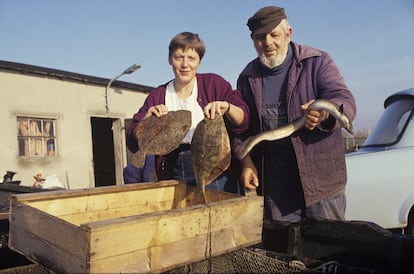
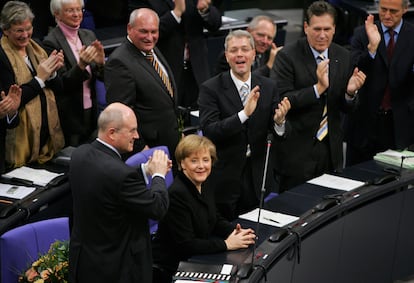
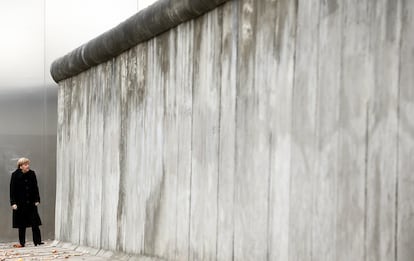
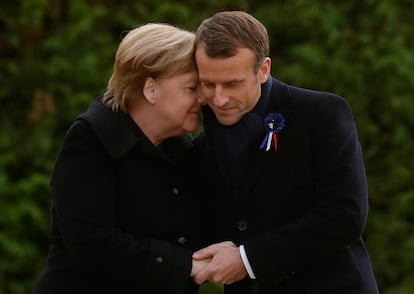
Q. In the recent regional elections in eastern Germany, far-right and populist parties won more than 40% of the vote.
A. This is a big problem. These parties and part of their electorate have goals that I do not share. What counts for me is human dignity, which is inviolable for everyone in Germany. Hatred towards certain groups, such as foreign citizens, cannot be tolerated. However, democratic parties must of course try to convince those who vote for these parties — only to express their dissatisfaction with certain developments — that refusal and protest as their only actions will serve no purpose.
Q. Right-wing extremist parties are currently a headache in many European countries.
A. That is why we have to continue to campaign for freedom again and again. The AfD is currently trying to appropriate the phrase “We are the people,” which comes from the Peaceful Revolution in the GDR in 1989, in order to exclude other people. But I believe that no one should define who the people are, who belongs to the people, and who is excluded in this way. Rather, every person who lives in a country and has citizenship is part of that people.
Q. And how should other parties treat far-right parties?
A. I think it is right to say that coalitions will not be formed and there will be no cooperation with them. But at the same time, we need to see what concrete problems exist in order to solve them properly. In many European countries we have the problem that in rural areas, people are more disillusioned than in cities. In too many cases, the infrastructure in the countryside is poor, many places are not well connected, there are not enough schools and doctors. These concerns must be taken seriously. But there can be no cooperation with parties that promote the marginalization of people, that want certain people to simply not belong in society, even if they have been living with us for a long time.
Q. In some regional governments in Spain, the conservative Popular Party has governed together with the far-right party Vox.
A. I cannot give advice to Spain, but I am clear that in Germany there should be no cooperation between democratic parties and the AfD.

Q. There is a crucial date in the book and in your career: the night of September 4, 2015, when you decided to open the German border to refugees trapped in Hungary. When you now see that politicians in Europe and America are triumphing with anti-immigration messages, and that even a social-democratic chancellor like Olaf Scholz is pushing for restrictive measures in this field, do you think that the message of September 2015 has been forgotten?
A. My decision not to turn away refugees from Hungary at the Austrian-German border on the night of September 4-5 2015 was a decision in favor of people who were on European soil. In Europe, we talk about our values every day. But at the same time, I write in my book that, as chancellor, I not only had to make this decision in the humanitarian emergency of September 4-5 2015, but also to find solutions that would last beyond those dates and help combat illegal migration. I would like to mention the agreement between the European Union and Turkey in this context. Many of the measures that are being taken today, for example the agreements with Tunisia or Libya, are a continuation of my policy at that time. This approach is intended to deal with the causes of migration, helping to ensure that those who spread hatred and resentment towards foreigners, such as the AfD, do not set the agenda. The problem is illegal immigration, that people pay a lot of money to smugglers and human traffickers, that people put their lives in danger, that those most in need may not even be able to come because women, for example, often do not have the strength to embark on such escape routes. We must try to tackle the problems at their root and, if people decide to leave their homeland, at least give them the opportunity to live close to it. That is why I strongly supported the EU-Turkey deal, which has made it possible to reduce illegal immigration from Turkey. But that means supporting that country for hosting a large number of people. I have been criticized for reaching this agreement with President Erdogan on the grounds that he was not a true democrat. But I think that sometimes we have to work together with politicians who have different convictions if this cooperation serves our own values and interests.
Q. Your former interior minister, Horst Seehofer, recently said that your 2015 migration policy “brought the AfD into parliament.”
A. It is well known that we disagree on the measures that should be taken to combat illegal migration effectively and at the same time ensure that these measures correspond to our humanitarian values. Europe cannot solve this problem by isolating itself, but above all by cooperating with the countries of origin of these people.
***
Angela Merkel weathered crises — well or badly — but she did not shape Germany, Europe, or the world. She managed more than she foresaw. She parried the blows but did not anticipate those to come. Deception is the title of one of the books that, three years after leaving office, examines her legacy and describes the years after Merkel’s departure as “a difficult awakening” after an era of well-being. It is as if the chancellor had anesthetized Germans and they had gladly allowed themselves to be put under. In 2021, she left the political scene enveloped in the aura of a stateswoman: the leader of Europe. Today, in Germany, she is experiencing a kind of purgatory. She is blamed for the country’s difficulties in preparing Germany for wars and recession, protectionism, and a geopolitical chessboard dominated by thugs. From her own camp, she is even accused of having fueled the extreme right with her policy of welcoming immigrants.
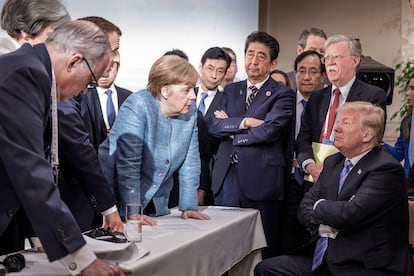
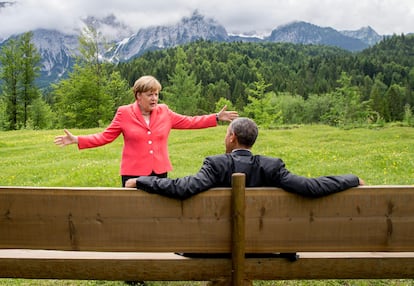
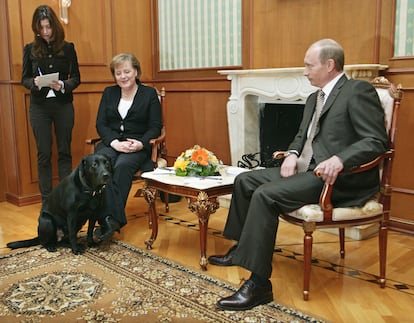
Q. Three years after you left office, more and more critical voices are being heard in your country regarding your legacy. It is stressed that after an era of prosperity, the Merkel era, the pillars of that prosperity have been broken: cheap gas from Russia through the Nord Stream pipeline, military security provided by the United States, and exports to China. Do you feel responsible for having maintained these dependencies and not having foreseen the current crises?
A. After 16 years as Federal Chancellor, I find it natural to ask these questions. During my time in office, I worked to prevent, as far as possible, a war like the one Russian President Putin launched against Ukraine in 2022. This attack has created a new situation, which of course must be responded to with new measures. Ukraine must have a peaceful and free future as a sovereign state. This goal cannot be achieved militarily alone; deterrence must be accompanied by diplomatic means that must be thought out in advance and available at the right time. If it had not bought Russian gas, Germany would have had the problem of high energy prices 10 years earlier, and it is also true that at that time more expensive alternatives were not accepted in the country. In addition, I found it appropriate to try to maintain trade with Russia, also for political reasons, in order to remain in contact with the country. This means that every era has its challenges. We can see how much pressure multilateralism is under by looking at China’s policy. I tried to overcome the major crises — the global financial crisis, the euro crisis, Ukraine, refugees, coronavirus — in such a way that Europe remained united. We have succeeded. Now we are facing new and important problems, and others will have to solve them. This includes our defense capabilities. Of course, we should have achieved the NATO target of 2% in defense spending more quickly. Not only Donald Trump, but also Barack Obama had already complained that Germany’s contribution in this area was not sufficient. Our defense spending increased until the end of my term, but not as much as I myself would have liked. I failed to convince my coalition partners that this was necessary and I did not obtain the parliamentary majorities necessary for this. That is why it must be achieved now. In this respect, I would have liked to achieve more. And I have to accept that people now criticize me for this.
Q. You say that you helped save the euro after the 2008 financial crisis, but the measures you supported or promoted were very harsh for southern Europe, including Spain. Do you understand that your image, which was excellent internationally, has been damaged in these countries because many people associate your policy with years of suffering? In these countries, Merkel is synonymous with austerity.
A. I understand that. And yet I think that the reforms were necessary. Look, I come from the GDR and in the new federal states we also had a very high unemployment rate after German reunification. I know what that means to people. There is no doubt that the austerity measures and the reforms represented a very, very difficult time in Spain, in Portugal, in Greece. But I think that the situation only improved thanks to these reforms. During this difficult time, the foundations for improvement were laid. In politics there are situations where you have to live with a bad image. But you can cope with it if you are convinced that you are doing the right thing. That applies to the refugee policy that I carried out, and it applies to European policy, and also to the policy regarding the coronavirus and the other major issues.
***
There are two biographical or personal keys that, beyond her political successes and failures, define Angela Merkel. The first, having grown up in East Germany and, therefore, having always felt like an outsider, starting with her own party, the CDU, a very Western party. The second, being a woman, which also marked her: she was the first, and to date the only, woman to lead Germany. But in that respect too she was an outsider in the CDU itself, which, in addition to being very Western, was very conservative and very masculine. And that is also why she was undervalued: “The Kohl girl,” they called her, in reference to the leader who promoted her, Helmut Kohl, and to whose downfall, due to the irregular financing of the party, she decisively contributed years later.
Merkel has experience of being scorned, and her supporters can argue that now that her legacy is being questioned, she is only being attacked again, despite the central place she now occupies in the history of Germany and Europe. But those who have habitually scorned her have ended up losing the game. What is striking, returning to her personal traits — being from the former East Germany and being a woman — is that, during her rise to power and her 16 years in office, she avoided making a banner of them. She concealed them.
Q. You have always avoided declaring yourself a feminist. But now you write in your memoirs that you would respond differently, that you would say: “Yes, in my own way, I am a feminist.” What is that way?
A. I want equal participation of women in all areas. This does not mean a quota of 20% or 30%, but, if possible, the same number of men and women in the various professions, in various management positions, and in politics. A lot is changing for men in society too; they have also played a certain role for centuries. We already see this in the family, for example, when it comes to raising children. We want men and women, fathers and mothers, to share the work equally. That is why we introduced parental allowance, for example, which also allows men to take a few months of paternity leave. At first there was mockery about this, people spoke of “volunteering to change nappies.” So feminism yes, but not a feminism that pits men against women, rather one that allows men and women to change together in such a way that we can talk about true gender equality.
Q. Why don’t you say “I’m a feminist” without any adjectives?
A. Because feminism, as it had developed in Germany and perhaps also in other European countries, was a feminism that was often linked to socialist ideas about society. It was a feminism that often pitted men against women. And that was not, and is not, my kind of feminism.
Q. You were a pioneer, the first woman and so far the only one to be Chancellor of Germany.
A. When I first became a candidate for chancellor in 2005, I realized that in politics being a woman was not an advantage. A lot of people, including many women, were worried, wondering whether a woman could do the job well, whether she would be strong enough. People always had only male role models in mind. But after I was re-elected for the second, third, and fourth time, Germans came to trust me.
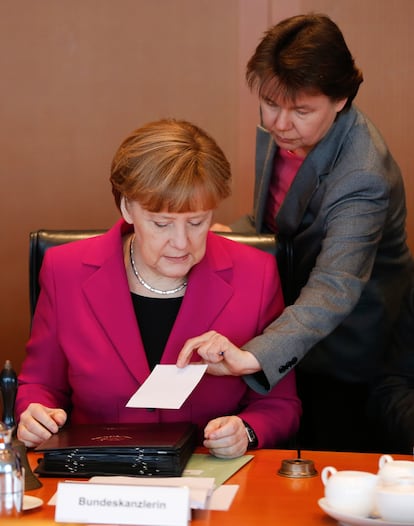
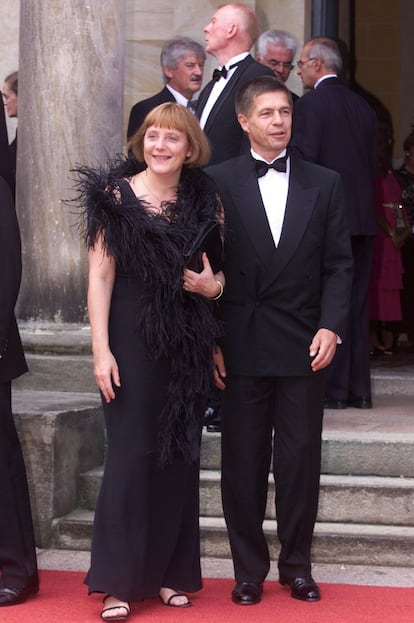
Q. “We can do it [Wir schaffen das]” is undoubtedly one of your phrases that will go down in history. You formulated it during the migration crisis. What current challenge today might require a “we can do it”?
A. I think the greatest wish today is that we can continue to live in peace and freedom in a united Europe. That is my wish.
Time is running out. Merkel ends the interview. She stands up. Outside, tourists are strolling past the Brandenburg Gate and, beyond, the government quarter is experiencing one of its busiest days since she left. Scholz and his coalition were unable to hold out in the end. She is isolated, yes, and is reluctant, very reluctant, to comment on the current political situation in her country. She measures every word, every adjective, but she has not switched off. Not completely. When asked about the current German political crisis, she asks for the recorder to be turned off (”Unter 3,” she says, the German journalistic formula meaning that what is going to be said is off the record, that it cannot be quoted). And only then does she say a few words.
Credits and acknowledgements
Sign up for our weekly newsletter to get more English-language news coverage from EL PAÍS USA Edition
Tu suscripción se está usando en otro dispositivo
¿Quieres añadir otro usuario a tu suscripción?
Si continúas leyendo en este dispositivo, no se podrá leer en el otro.
FlechaTu suscripción se está usando en otro dispositivo y solo puedes acceder a EL PAÍS desde un dispositivo a la vez.
Si quieres compartir tu cuenta, cambia tu suscripción a la modalidad Premium, así podrás añadir otro usuario. Cada uno accederá con su propia cuenta de email, lo que os permitirá personalizar vuestra experiencia en EL PAÍS.
¿Tienes una suscripción de empresa? Accede aquí para contratar más cuentas.
En el caso de no saber quién está usando tu cuenta, te recomendamos cambiar tu contraseña aquí.
Si decides continuar compartiendo tu cuenta, este mensaje se mostrará en tu dispositivo y en el de la otra persona que está usando tu cuenta de forma indefinida, afectando a tu experiencia de lectura. Puedes consultar aquí los términos y condiciones de la suscripción digital.









































